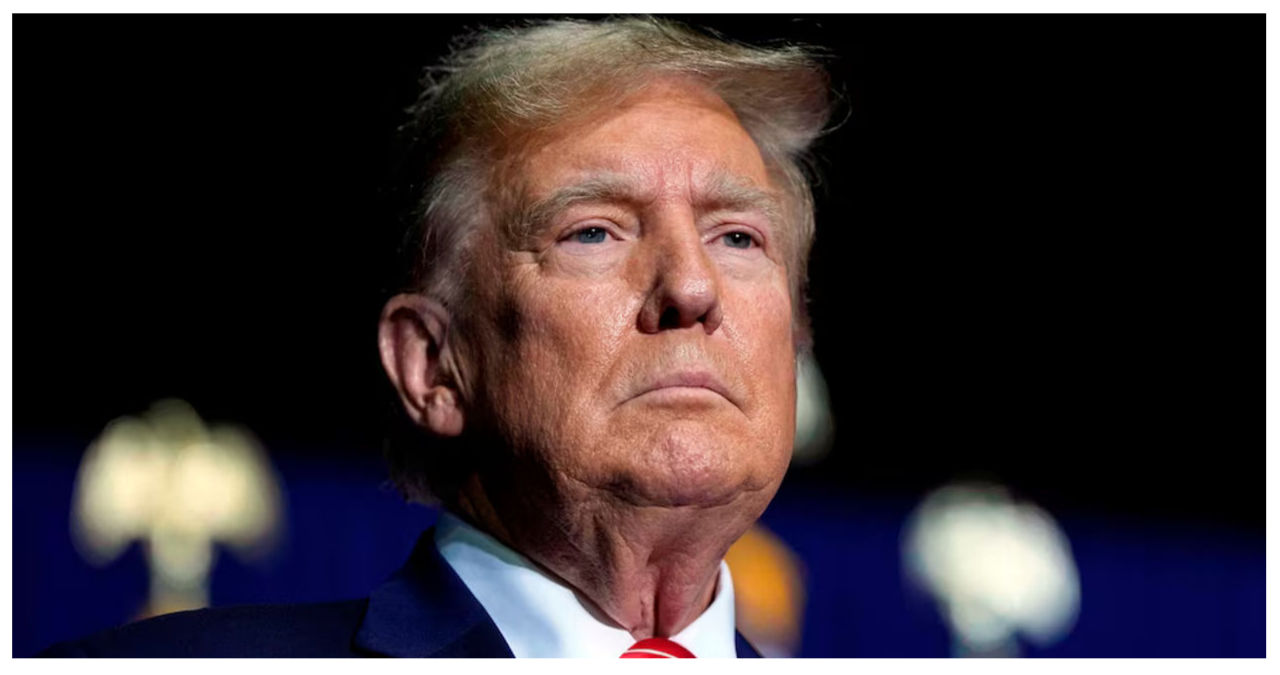Former President Donald Trump’s attorneys stated in a recent appellate court filing that he is encountering significant obstacles in securing a bond to meet the $464 million civil fraud judgment. According to his legal team, the magnitude of the judgment is so substantial that it necessitates the use of real estate as collateral.
In February, Judge Arthur Engoron ruled that Trump must pay a total of $464 million in disgorgement and interest. This decision was made after Trump was found responsible for engaging in ten years’ worth of business using fraudulent financial statements, which inflated the value of his real estate assets and exaggerated his wealth. As a result, Trump is prohibited from holding any leadership positions in New York companies for a period of three years. Additionally, his sons, Donald Trump Jr. and Eric Trump, were each fined $4 million and are barred from such positions for two years.
According to an affirmation by Alan Garten, the general counsel of Trump Organization, the defendants have encountered significant challenges in obtaining an appeal bond for the complete amount of $464 million.
According to Garten, Trump is in a “financially stable” position and possesses significant assets. However, due to the size of the judgment, he would need to use his real estate as collateral for the bond. Garten stated that, thus far, no surety bond provider, including Chubb, has been willing to accept real estate as collateral. Chubb is the insurance company responsible for underwriting Trump’s $91.6 million bond, which is intended to cover the $83 million judgment in the E. Jean Carroll defamation case, along with any accrued interest.
According to Garten, this poses a significant challenge for the Defendants.
In their latest appeal, Trump’s lawyers have once again requested the appellate court to grant permission for Trump to post a bond in a reduced amount. They have consistently argued that the imposed judgment is “unconstitutionally excessive.”
“Defense lawyers Alina Habba and Clifford Robert argue that selling real estate holdings in a hurry would lead to significant and irreversible financial losses, which they describe as textbook irreparable injury.”
Gary Guilietti, the president of insurance surety Lockton Companies who testified in Trump’s defense at trial, has played a crucial role in facilitating the Trump Organization’s communication with bond companies. According to Guilietti’s affidavit, the surety companies have declined to accept the Trump Organization’s properties as collateral. As a result, the company has been left with no choice but to provide the full bond amount of $557,491,716 in cash and cash equivalents, equivalent to 120% of the required amount.
According to Guilietti, the Trump Organization is not in possession of $1 billion in cash or cash equivalents, despite being in a strong liquidity position.
The New York Attorney General’s Office has raised concerns about a lower bond, asserting that Trump and his co-defendants may try to avoid complying with the judgment or make enforcement more challenging.
Former president denies all wrongdoing and plans to appeal.
Engoron has issued an order for Trump to pay pre-judgment interest on every ill-gotten gain. The interest will accrue based on the date of each transaction. Additionally, once the court enters the judgment in the case, Trump will be subjected to a 9% post-judgment interest rate.
According to University of Michigan business law professor Will Thomas, the interest in the case not only contributes to Trump’s increasing legal expenses but is also expected to influence his strategy for appealing the decision.
According to Thomas, Trump will have to deposit the full amount of the fine into an escrow account in order to halt the accrual of interest during his lengthy appeal of Engoron’s ruling.
Although Engoron’s ruling will automatically delay the enforcement of Trump’s appeal, Trump must first deposit funds into an escrow account or submit a bond to proceed with the appeal.
If Trump chooses to post a bond to cover the fine while he appeals, the interest will keep accumulating during the appeal. This could result in adding potentially tens of millions of dollars to the total amount.



